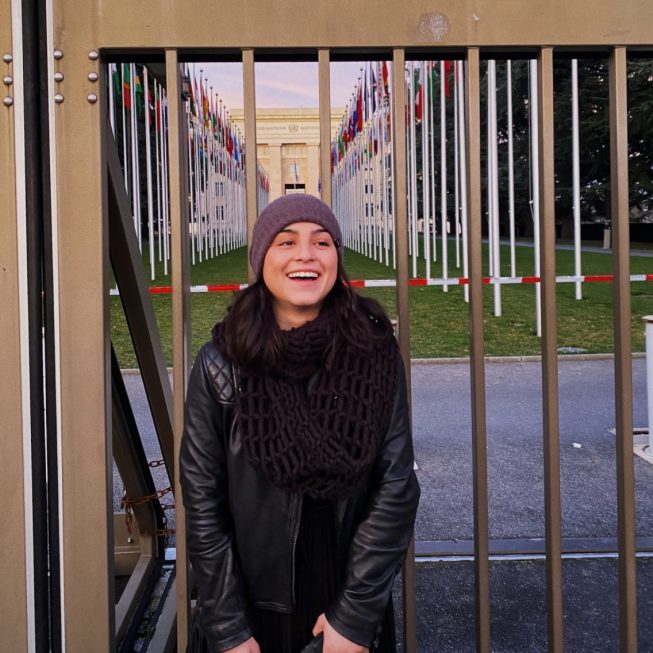Meet Mariana Ferreira, New Profit’s Catalyze Investment Summer Intern

What inspires you to work in the social sector? What about New Profit’s mission inspires you?
New Profit’s mission aligns with my enduring desire to be an agent for positive change. My fourth grade self would be proud, as I shared in our school’s yearbook that my dream job was to be a philanthropist. My sense of responsibility to contribute to the empowerment and well-being of others stems from my intersecting identities, one of which is being the daughter of parents who emigrated from South America.
I grew up sheltered from a lot of our society’s systemic failures. It was by breaking out of the bubble of my direct community that I began to learn about them for myself. For instance, as a volunteer tutor at a neighborhood immigration center, I became aware that many young immigrants were struggling academically and socially in school, as they weren’t given the time nor the resources they needed to succeed.
I find that the more I learn about historical and contemporary inequities, and the effort being made to challenge them, the more I find myself addressing the questions that New Profit brings to the forefront. The way I see it, New Profit’s work is aimed directly at addressing one of the very cruxes of injustice today: unequal opportunity.
What are you most excited about during your summer at New Profit?
Coming into the internship, I was most excited about developing a stronger, more nuanced understanding of how the social sector functions. However, having started my internship, I am realizing that beyond this technical type of learning, I have a unique opportunity this summer to learn from the vibrant community of leaders I am immersed with daily.
I am so inspired by the work being done by the intelligent, creative, and compassionate people at New Profit. It has been very energizing to work as part of a network of professionals from diverse fields who share a deep understanding of and dedication to social justice and equity. I think some of the most important things I will learn this summer will be about how to be more collaborative, open, and intentional in my thinking, communicating, and leading processes. I am excited to bring what I learn from the leaders at New Profit and engage it in other areas of my life.
Describe a piece of wisdom that you learned in your life, or that has been imparted on you by someone who is important to you. How has this idea influenced your life?
Something I learned from my mom, that I oddly really treasure, is how important it is that I not take myself too seriously all the time. She’s been a role model to me in a lot of ways, including the way she worked and continues to work relentlessly to achieve her goals. What makes this hardworking side of her even more impressive to me is the way she simultaneously gives herself space to be completely goofy. For example, she has pictures hanging in her office of her dancing with her boss taken on her company’s professional headshot day.
Certainly, this little piece of wisdom is not something that applies to everyone. But for me, as someone who has always been very serious in academic and professional settings, having the space to just be silly and to laugh at myself serves not only as a mode of expression, but also as a way to connect with other people. As I get older, I cherish this piece of advice more and more. I’m so grateful that my mother has taught me to step back and just enjoy the little oddities and joys and absurdities of life.
What is one of your favorite quotes, and what does it mean to you?
Although I could probably copy and paste the entirety of Bryan Stevenson’s book, Just Mercy, as one of my favorite quotes, I have limited myself to the few lines below:
“…the true measure of our commitment to justice, the character of our society, our commitment to the rule of law, fairness, and equality cannot be measured by how we treat the rich, the powerful, the privileged, and the respected among us. The true measure of our character is how we treat the poor, the disfavored, the accused, the incarcerated, and the condemned.”
Stevenson became a personal hero of mine after I read his book, and this quote means more to me than the message it conveys in and of itself for a number of reasons. It reminds me of a time when I began confronting the painful truths about the social, particularly racial, narratives I had been previously exposed to. Ultimately, what I learned influenced the major I studied in college, and inspired me to pursue a career where I could advocate for marginalized communities. His point in this quote, about how we should judge societal systems, has become an integral part of how I approach questions of justice.